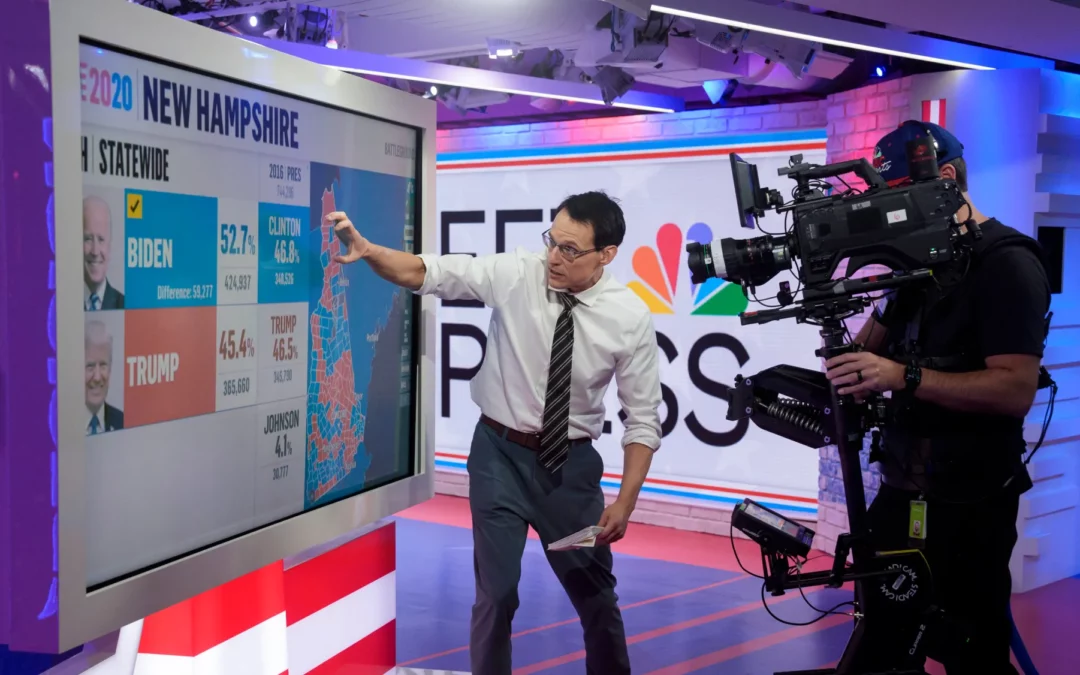On the Sunday before Election Day, NBCUniversal was in full corporate synergy mode.
For one day, 30 Rockefeller Plaza hosted the long-running public affairs show Meet the Press, with moderator Kristen Welker grilling Sen. Raphael Warnock and Gov. Doug Burgum.
She was accompanied by her colleagues in preparing for the election: Steve Kornacki operated the interactive “Big Board,” explaining the polls, and MSNBC personality Jen Psaki acted as the liberal voice throughout the panel discussion.
It was a synergy that may never happen again if Comcast, the parent firm of NBCU, effectively separates its cable channels from its other media assets.
READ MORE: NBCU Seek To Make The Difficulty Of Delivering Creative Ads Standard

The cable giant announced Wednesday that it intends to press forward with its proposed split, which will see MSNBC, CNBC, E!, Syfy, USA, Oxygen, Golf Channel, Fandango, and Rotten Tomatoes spun off into their own firm, managed by Mark Lazarus.
However, the SpinCo purchase introduces a plethora of challenges, and officials appear to have few answers as of yet. What happens after the split might change the channels—and the entire television industry.
The questions are particularly severe on Comcast’s cable news networks MSNBC and CNBC. An MSNBC insider described the network’s atmosphere as “depressed,” and a CNBC source described it as “annoyed, but probably fine.”
This dynamic makes sense. MSNBC has benefited greatly from its close ties to NBC News, with its own talent receiving broadcast exposure and many NBC anchors filling time on the cable channel. MSNBC has relied on NBC News’ extensive reporting resources, which it has augmented with its own, more opinion-driven content.
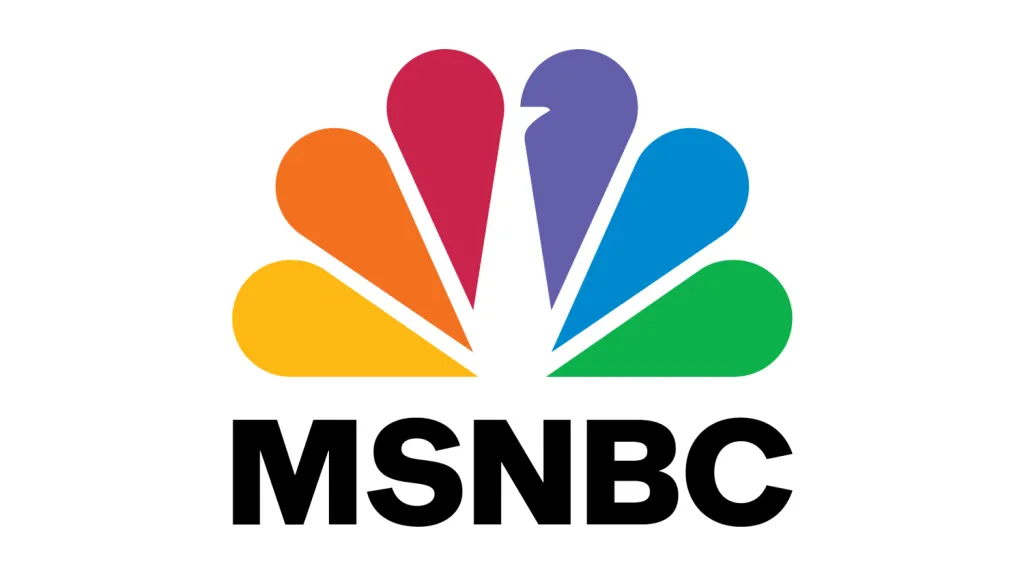
CNBC, on the other hand, has historically enjoyed considerable autonomy. Its executive offices, newsroom, and studios are in Englewood Cliffs, New Jersey (with satellite studios at the New York Stock Exchange and Nasdaq), and it wasn’t until Cesar Conde took over the NBCUniversal News Group in 2020 that CNBC resources began to be integrated into the larger news operation.
Staff members there are unsure of what is to come (don’t expect inexpensive theme park trips anymore), but they are more confident in their capacity to execute free of the broader NBCU organization. CNBC began reporting to Lazarus Wednesday, gaining an early start on the new structure.
Lazarus spoke with key MSNBC talent on Wednesday, including MSNBC president Rashida Jones, according to a corporate source. Lazarus remained optimistic, but noted the deal’s difficulties and concerns, some of which will be very close to MSNBC’s identity.
READ MORE: Dream Team’s Win Brings Ratings Gold To NBC And Peacock
Consider this: Will the channel continue to be called MSNBC? Will it still be possible to use the Peacock emblem? Will the channel enter into a financial arrangement with NBC News to continue using its reporting, or will it pursue alternative options? They are large questions with no clear solutions, and the devil will be in the details, especially on MSNBC.
The Sports Question.
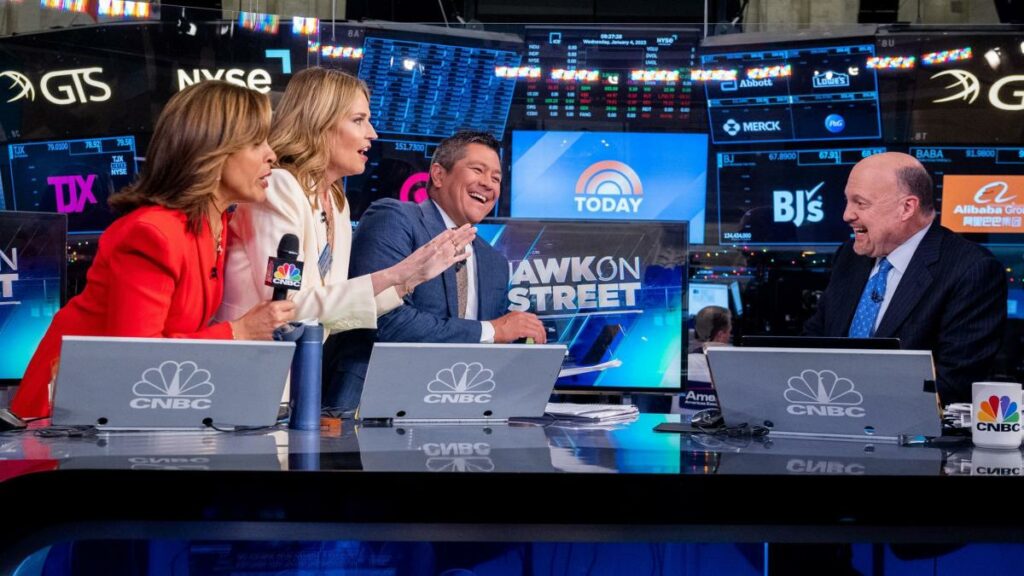
Comcast president Mike Cavanagh described the combined organization in terms of news, sports, and entertainment in a memo to NBCUniversal employees following the announcement of the merger. He wrote that WWE, NASCAR, the Premier League, golf, college basketball, and the Olympics will be broadcast on the USA and Golf Channels.
Will they really?
NBCUniversal owns the rights to the sports that appear on cable channels. However, the spinoff raises questions about whether SpinCo will retain those rights or seek to acquire its own.
NBC Sports’ president, Rick Cordella, stated at a Sports Business Journal conference that the deal is a microcosm of the bigger industry. When NBCU was first purchased by Comcast, the cable channels were the crown jewel, but today we’re looking at things a little differently in this fragmented media environment.”
Cordella, like Lazarus, provided little details about how the split would work, something NBC’s sports rights partners are undoubtedly keen to learn more about.
“I can’t speak about all the logistics of how all this will happen, but from a sports perspective, the partners that we have on cable assets like Golf Channel and USA, we’re going to fulfill every obligation, every promise we made to them,” he told reporters.
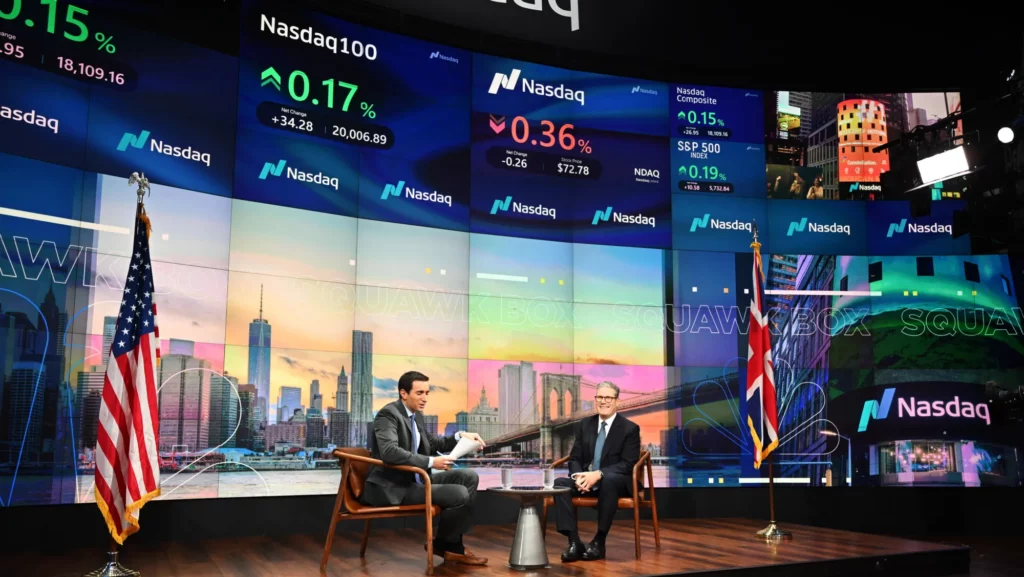
Golf Channel, like CNBC, used to operate separately in Orlando before joining with NBC Sports in 2021. Perhaps it will return south in the spinoff.
However, one sports insider hypothesized that the new business may become a sports player in its own right, pursuing whatever fresh rights it can to bulk up, given the potential short shelf life of legacy NBC sports programming.
The Future Of Entertainment
The new SpinCo will have plenty of entertainment options, with USA, E!, Oxygen, and Syfy all present to varying degrees. When the arrangement was announced, NBCU was in the process of expanding its scripted programming on USA.
However, there is no doubt that in recent years, the majority of NBCU’s entertainment spending have gone to Peacock, the NBC broadcast network, and, to a lesser extent, Bravo, with the cable networks doing their best with limited resources.
Will the new structure enable them to make additional entertainment investments? Possibly. It might also allow them to buy from a wider range of producers, giving them additional options. The separate corporation could also potentially negotiate its own streaming agreements, allowing it to license its own content to other streaming services. However, cable is no longer the home of entertainment, as evidenced by NBCU’s actions. Suits was a blockbuster in the United States, but it quickly became a Netflix phenomenon. The company’s future spinoff, however, will air on NBC and Peacock, leaving USA in the dust.
What about Bravo?
A peculiarity in the deal: NBCU will keep only one cable channel: Bravo.
This makes sense. Bravo has unquestionably established itself as the strongest brand in the company’s cable portfolio, with its reality series earning significant TV audience as well as viewing on Peacock. If any brand in the corporation could survive the transition to streaming, it would be Bravo.
However, the transaction raises issues about how long Bravo the cable channel will exist, and whether NBCU wants to move faster to integrate it into Peacock (or, for that matter, NBC, where Bravo-branded series may live).
While Bravo will have the NBC network to assist it preserve carriage (more on that below), it will be without its cable channel siblings in the wider portfolio (except Telemundo channels, which will remain in place).
Are you experiencing distribution problems?
There is little doubt that NBCU’s cable stations benefited from their connection to the NBC broadcast network. When it comes to distribution deals, NBC is about as essential as they come, and the company has enough clout to keep the rest of its channels on air.
This agreement severes that relationship, forcing the SpinCo channels to negotiate for themselves without the NBC hammer.
According to S&P Global Market Intelligence analyst Scott Robson, Comcast has arguably been more aggressive in the cable industry than any of its competitors in terms of recognizing the business’s problematic economics.
“Comcast has been more aggressive than any other media company in shutting down basic cable networks over the years, shutting down 7 networks since 2015,” according to Robson. “As a result, it’s not unexpected that Comcast is splitting off its cable networks. The cable networks are more vulnerable to future reductions than the broadcast networks as the pay-TV universe contracts.”
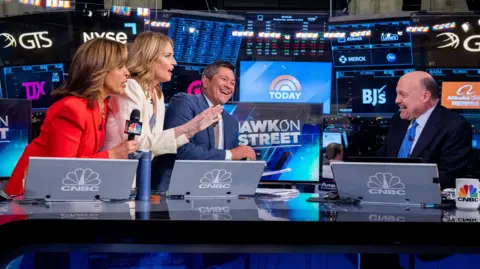
According to S&P, the most popular networks, including USA, Bravo, E!, MSNBC, and Syfy, will be in over 60 million homes next year, with CNBC and Oxygen in somewhat fewer. But, which networks will serve as the spinoff’s tentpoles? USA? If so, how much leverage will it have in negotiations?
Cable Consolidation
Comcast has no reservations about what it envisions the new company doing, with Cavanagh stating that SpinCo will be allowed to “play offense” and operate “as a potential partner and acquirer of other complementary media businesses.”
The murmur in Hollywood quickly centered on Paramount, where new leadership is scheduled to take over in the new year, with a lot of interest in the Paramount studio, streaming, and CBS, but less enthusiasm for cable TV brands like MTV and Comedy Central.
Independent brands such as AMC Networks and Hallmark spring to mind, as does Warner Bros. Discovery’s suite of channels, though officials there appear to be laser-focused on executing their strategy or securing a larger agreement.
Comcast’s spin will precipitate significant changes that are not yet fully understood, but it is almost certain that it will become the industry’s long-awaited rollup vehicle. The only question is: who is in and who is out?
Radiant TV, offering to elevate your entertainment game! Movies, TV series, exclusive interviews, music, and more—download now on various devices, including iPhones, Androids, smart TVs, Apple TV, Fire Stick, and more.


